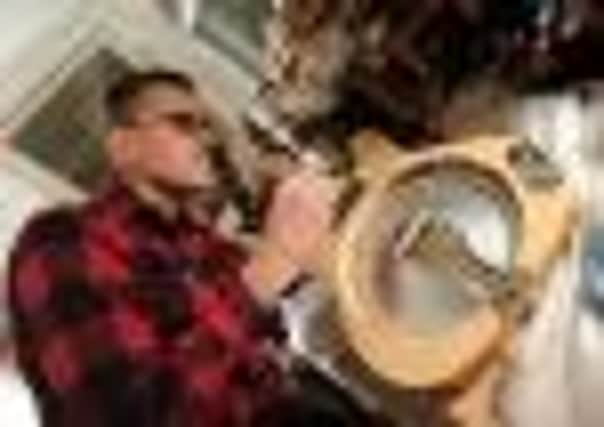Video: How to get that authentic blues guitar sound - from a workshop in Skipton


But for Skipton man Andy Solloway, 48, the chance to do something he loved and earn a living from it was too good to miss.
He now spends his days turning electric guitars into resonator guitars from a workshop at his house.
Advertisement
Hide AdAdvertisement
Hide Ad“I’ve been doing it part-time for four years,” said Mr Solloway.


“In July, I took the step to resign from a job in further education which was heading towards being cut back.
“I thought, ‘I’ve got to go for it and go with my passion and hopefully make a living out of it’.”
Resonator guitars were invented in the 1920s as part of a quest to increase the volume of acoustic guitars so they could be heard over the louder instruments in a band. Two men, John Dopyera and George Beaucmap, used an aluminium speaker cone to drastically increase the sound levels produced by a guitar and the resonator was born.
Advertisement
Hide AdAdvertisement
Hide AdWithin 10 years, however, the electric guitar had been invented, removing the need for the resonator – but it survived. When resonator guitars were being sold off cheaply, they were picked up by musicians in Mississippi and became associated with blues music, partly for their use in playing slides.
Today, the demand remains – not least because of the striking, chrome-covered appearance of the instruments. Even folk music legend Mike Harding and the guitarist with Leonard Cohen’s touring band play Sollophonics.
Since 2008, Mr Solloway has carved a niche for himself producing resonators, under the name Sollophonic Guitars. Because his instruments are converted from electric guitars, they are multi-functional and can be plugged in to compete with rock bands, as well as having a softer sound.
Those four years of hard work have paid off and when anyone searches the internet or guitar forums for information about resonator guitars, the name Sollophonic will soon crop up.
Advertisement
Hide AdAdvertisement
Hide AdEven so, turning something which was a hobby in the evenings into a full-time job was a big risk to take for Mr Solloway, whose wife is a self-employed photographer. The couple have two sons, aged 15 and 12, so having enough money for the family to live on had to be a priority in his decision.
But Mr Solloway believes he will do better now that he can focus on his own business.
“I’ve been limited by time, going to another job for 20 hours a week,” he said.
“When I was at work, people were ringing and finding no-one in and then not continuing. Now I’m here, able to pick up the phone and talk to people.
Advertisement
Hide AdAdvertisement
Hide Ad“Maybe I was losing business because I was working elsewhere. If someone emails me during the day now, I can give them a quick reply rather than waiting until the end of the working day.”
Working full time on the guitars now means Mr Solloway can increase his production to at least one a week, and focus on finding customers around the world.
He has already exported to Europe, Japan and America, but he knows at least some of his focus must be closer to home.
As a Craven district councillor, he is used to playing an active part in his community. He has contacts in the music scene around the area and has helped to run workshops on slide guitars for a new music shop in Settle, all of which helps to raise his profile.
Advertisement
Hide AdAdvertisement
Hide Ad“We all know each other and mention each other to other customers,” he added.
Just three months into self employment, Mr Solloway is already advising others to become their own boss. As well as the guitar business, he uses his skills from teaching to offer tutoring in maths and English to children in the Skipton area and suggests others should consider having several sources of income too.
“That’s possibly the future for people who are looking at redundancy in the public sector – if they can’t think of one skill to bring in enough money, they might need to double up,” he said.
“It’s about looking at your skills and thinking about what you can offer.
“Go with your passion,” he said.